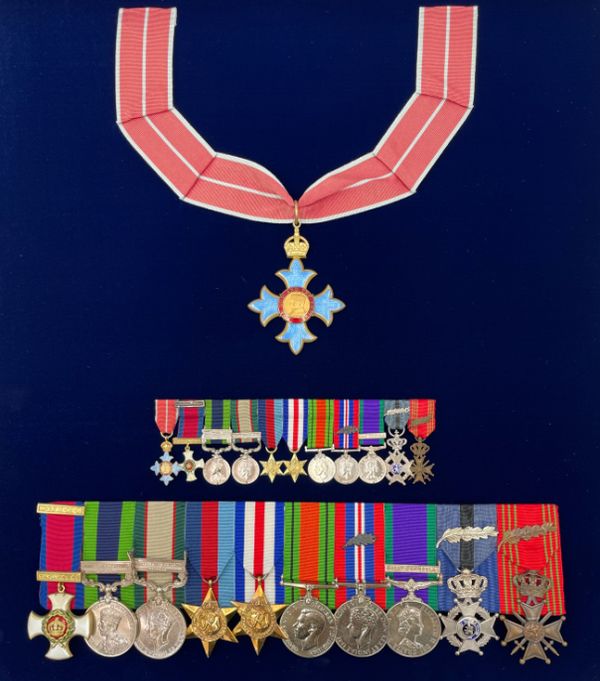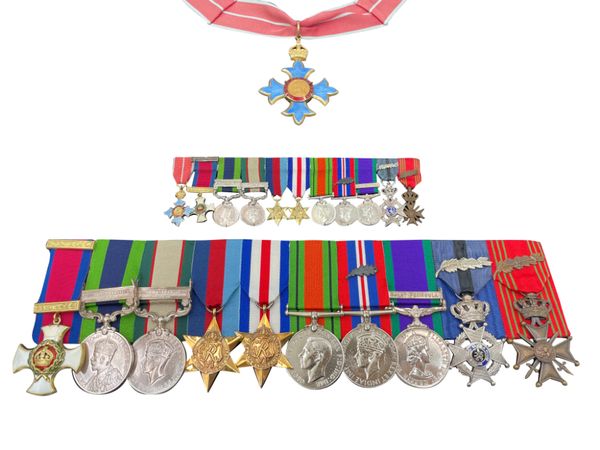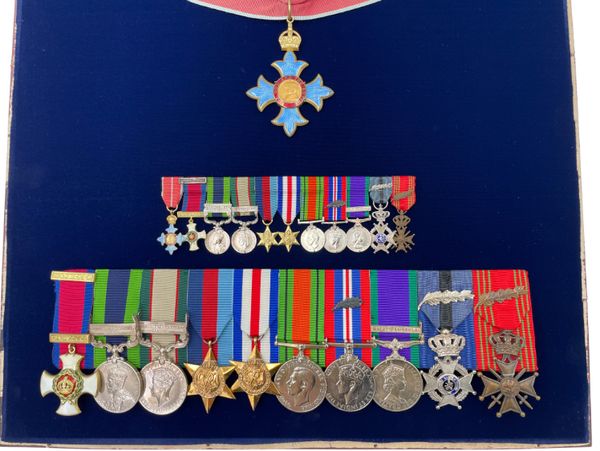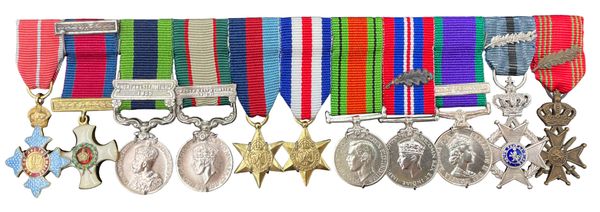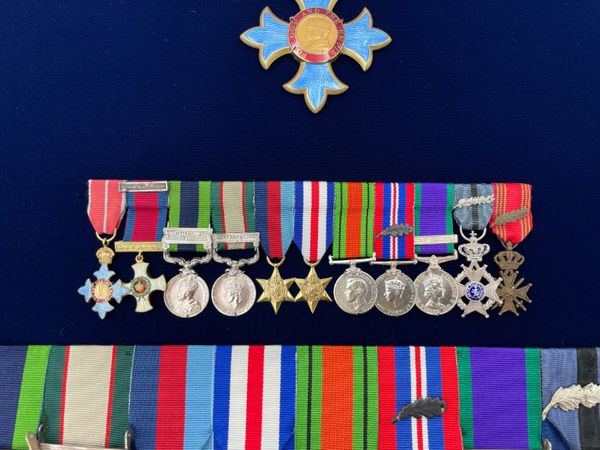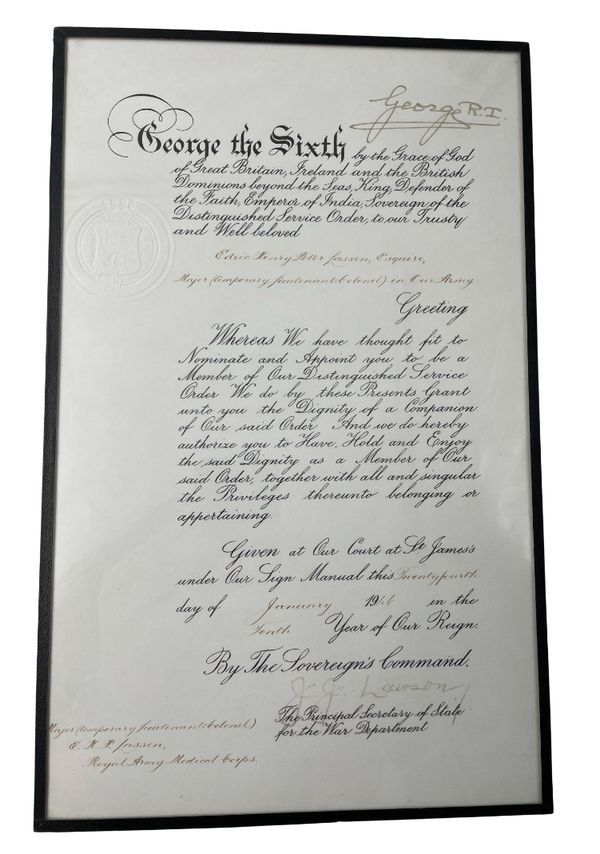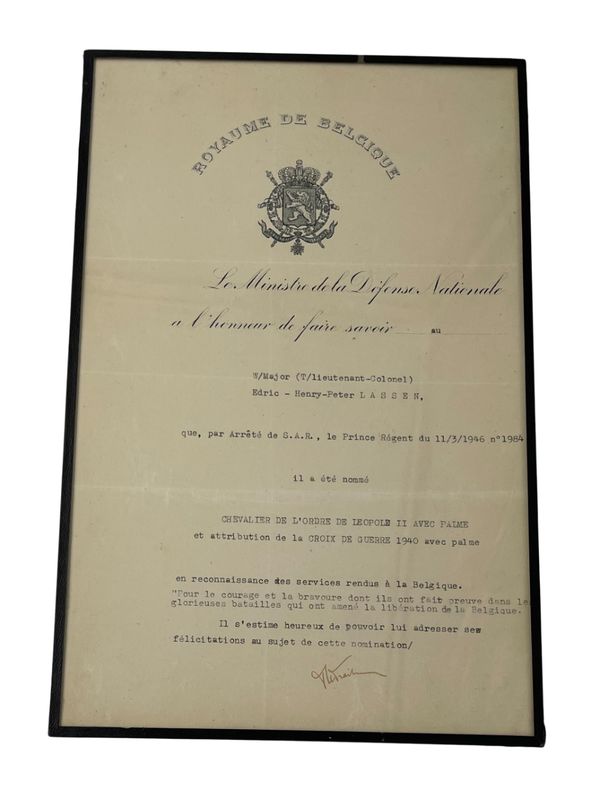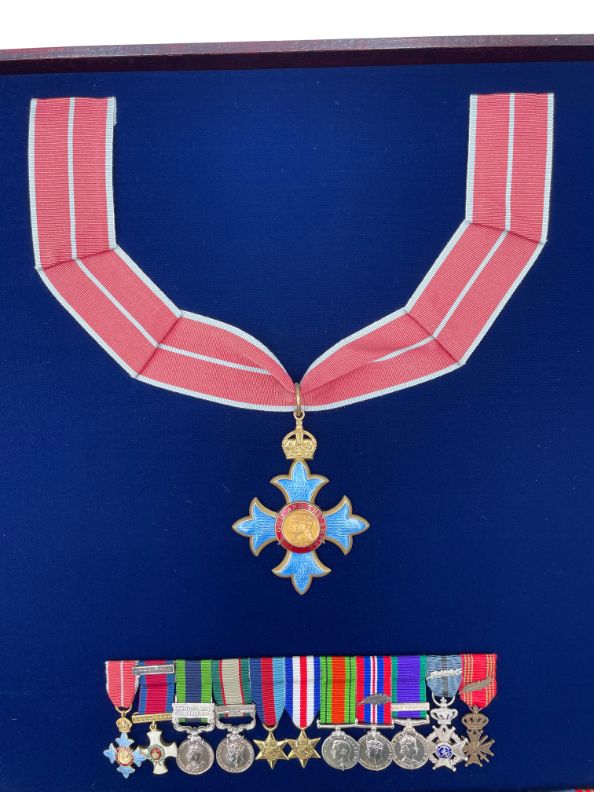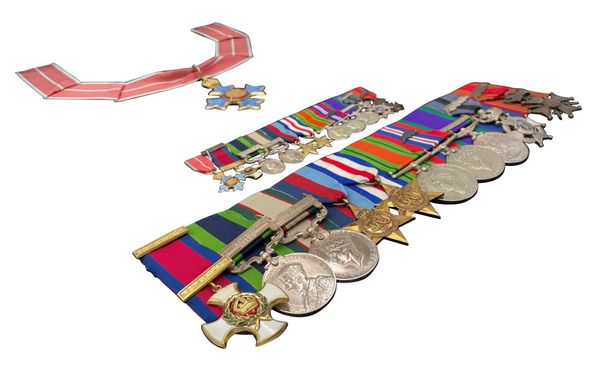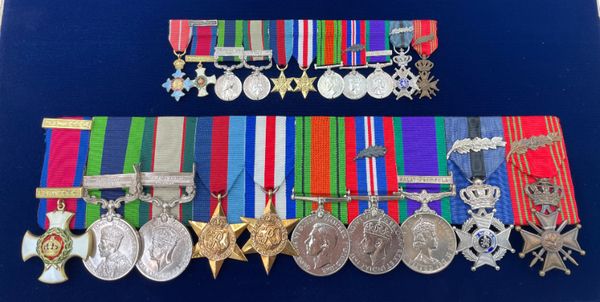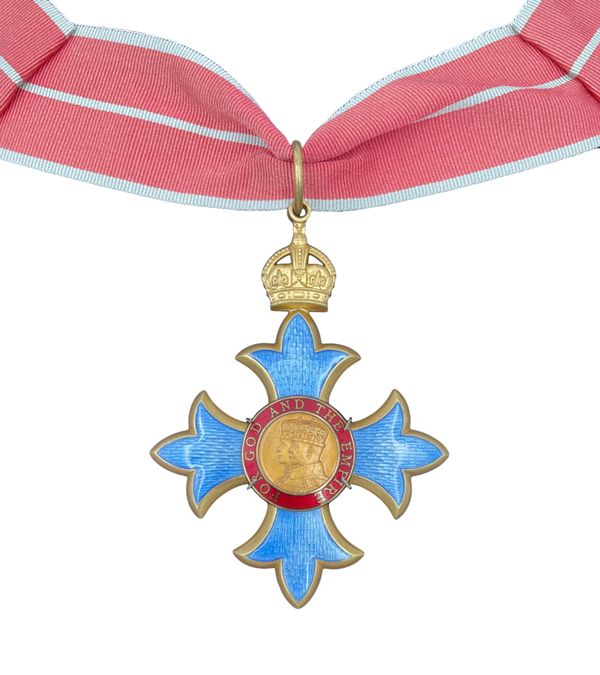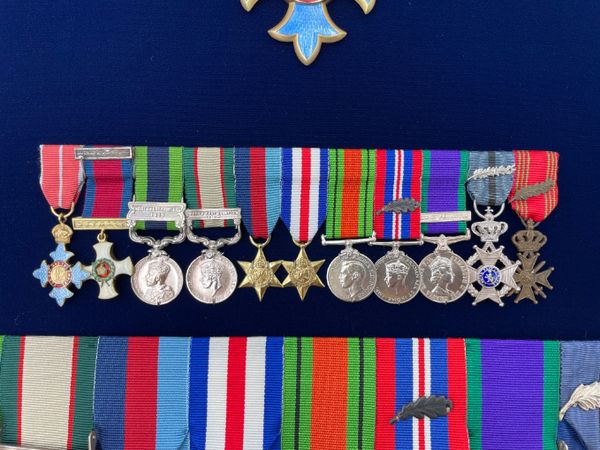who, after nearly drowning while coming ashore at Sword Beach on D-Day, set up and commanded No 21 Field Hospital.
Military C.B.E.
GVI Distinguished Service Order
Indian General Service Medal ' Northwest Frontier 1935. Correctly impressed. Capt E H P Lassen RAMC
Indian General Service Medal. Northwest Frontier 1936 - 37. Correctly impressed. Capt E H P Lassen RAMC
1939 to 45 Star
France & Germany StarDefence Medal
War Medal
GSM 1962 -2007 Malay Peninsula. Correctly impressed. Brig E H P Lassen DSO.
| Condition Report: | click here |
| Estimate: | £4,000 - £6,000 |
| Hammer price: | £4,000 |
Order of Leopold (Belgium)
Belgium Croix de Guerre.
With miniature medals.
The group is housed in a wooden frame.
Condition VF+ (enamel loss to the Order of Leopold).
The group comes with his original framed certificate for the DSO and the Order of Leopold.
Edric Henry Peter Lassen was born in Lewisham, London, on the 8th of December 1908. His parents were Danish and settled in England before his birth. His father, Peter, owned his own company importing goods.
Edric, who preferred to go by one of his middle names 'Peter', was educated at Oundle School; he continued his education at Kings College in London and gained his medical degree from King's College Hospital. He was a keen sportsman while at university, with rugby being his main sport.
Peter was commissioned as a Lieutenant on probation into the Royal Army Medical Corps on the 7th June 1934. He then saw service in India on the Northwest Frontier in 1935 as the Medical Officer of the 2nd Bn of the Argyll and Sutherland Highlanders, and again from 1936 to 37, when he served with No4 Field Ambulance. Peter served in Military Hospitals in India until 1940, when he was transferred back to the UK and worked with the War Office until 1942.
From 1942 he was involved in the planning and practice of specialised landings to be used in the invasion of Europe.
Lassen landed on Sword Beach under heavy fire and nearly drowned coming ashore on D-Day, he was slightly wounded, but the casualty roll notes 'Remaining at Duty' he established No21 Field Hospital, which was quickly at full capacity.
"Over the first 48 hours," Lassen recalled, "we were overwhelmed with casualties, and there was no rest for anyone; I remember that on the first night, sometime towards midnight, I counted 60 priority casualties awaiting or receiving plasma transfusions both inside the department set aside for this purpose, and also outside, lying stretcher-to-stretcher around the main medical centre vehicle circuit, and in considerable danger of being run over by the amphibious vehicles collecting casualties.
"These numbers, of course, were dwarfed by the far larger numbers of walking wounded and less seriously injured. The reason for the large influx of casualties was due to the release of the backlog, which had been held in divisional field ambulances and advance dressing stations, against the time of our surgical centre opening up to receive them."
On D-Day +2, a German bomber succeeded in bombing the petrol stores that had been built up at Sword Beach, the fire caused an adjacent ammunition dump to explode, and 55 men were wounded.
Lassen said: "All at once, the plight of casualties lying immobilised on stretchers above ground was fully appreciated, and within a very short space of time, two bulldozers reported to us with orders to dig us in. We struck the tents in turn, and the bulldozers got to work. Very soon, each tent and marquee had a high surround of sandy soil, and the floor had been dug down to a depth of some four feet. The surgical teams worked with a much greater sense of security."
After working practically non-stop for ten days, Peter was promoted to Command No 9 Field Ambulance of the 3rd British (Assault) Division. He remained with this unit for the rest of the War, pushing through France and ending the War in Bremen, Germany.
For his service during the Second World War, he was Mentioned in Despatches and awarded the Distinguished Service Order on the 24th of January 1946. At the time he held the rank of Major (Temporary Lieutenant Colonel). Lassen received the Order of Leopold and Belgium Croix de Guerre in 1946.
In the post-war years, he remained in the Army, was Honorary Doctor to Queen Elizabeth II in 1963 and served in Malaya in 1964 as a Brigadier. Upon his retirement as a Brigadier in 1969, he was appointed C.B.E.
Peter Lassen died on the 23rd of April 2004.
Condition VF+ (enamel loss to the Order of Leopold).

